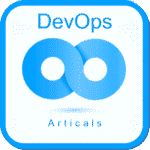DevOps Operate – Task demarcation
Gerelateerde artikelen
Task demarcation – Introduction

Dev and Ops work together. However how should one demarcate the tasks? What is a good separation or are Ops people are in the end also developers? This article gives a solution for Task demarcation.
Task demarcation – Definitions
OPS process
In many frameworks OPS is considered to be a function. This however hinders one to put SMART targets on the work of OPS. Also the governance of a function is less clear. In this article OPS is considered to be a process.
Task demarcation – Concepts
Demarcation
This term is used to make a split between left and right. Left is in this article Dev and right is OPS. The split is made in the total number of tasks that have to be performed by a traditional OPS team.
Task demarcation – Best Practices
This article starts with the description of the OPS as process. Next topic it the demarcation of this process with the Dev process.
The OPS process
The Operations process consists of the following aspects:
- Installing infrastructure and applications
- Configure infrastructure and applications
- Backup & Recovery
- Monitoring infrastructure and applications
- Job scheduling
- House keeping
- Performance & tuning infrastructure and applications
- Storage management
- Print management
- Environment management
The OPS demarcation
The OPS process is in the last 10 year strongly reshaped. First of all, many objects are getting more intelligent. Secondly the cloud services have taken over large parts of OPS. And last but least the Infrastructure as Code (IaC) has moved a large number of tasks from the OPS towards the DEV team. IaC is made possible by virtualizing the majority of the physical objects into software objects that are programmable.
The demarcation of the OPS process is visualized in the following list box. The red text is related to OPS the green italic text is related to DEV. In general OPS does the work that is overall needed while DEV concentrates on the application specific aspects of OPS.
DevOps aspects:
-
- Install – tools and applications in D-T
- Configure – tools and applications in D-T
- Backup & recovery
- Monitoring – application monitoring
- Job scheduling – application schedules
- Housekeeping – application, cleaning, archiving etc
- Performance & tuning – application Performance & Tuning
- Storage management – database sizing
- Print management – application related print aspects
- Environment management
For the main aspects of OPS (monitoring, scheduling, housekeeping, performance & tuning and storage management an even more detailed demarcation can be distinguished. The following list boxes give these demarcation.
DevOps and Monitoring
- Dev:
- Define an event SRG per application type
- Maintain an event catalogue
- Configure the monitor device
- Test the monitor operation
- Enter the event cataloguD in the DoD
- Definition and management of application events
- Ops:
- Lifecycle management hardware and software
- Day-to-day operations
- Blacklist / whitelist definition and management
- Infrastructure / application event logfile analysis
- Infrastructure / application event filtering
- Infrastructure / application event correlation
- Infrastructure / application alert
DevOps and Scheduling
- Dev:
- Include the sprint scheduling of reporting, processes, batches, file cleaning, etc
- Define an SRG for scheduling
- Enter the job description and / or rule it
- Determine the DoD
- Ops:
- Lifecycle management Hardware + Software
- Day2day operations
- Definition and management of job process, job stream
- Definition and management of job description
- Job exceptions
- Set job on hold
- Will be executed after off team if conditions apply
- Dependent job will not be executed
- Set job on ice
- Will be executed after off ice but only in the next run
- Depending on jobs, they will be executed
DevOps and Housekeeping
- Dev:
- Define which manual and automatic tasks should be performed
- Determine the DoD
- Ops:
- Cleaning of system files and applications
- Checking infrastructure and application settings
- Establishing healthiness / sanity checks
- Check system and application behaviour
DevOps and Performance & Tuning
- Dev:
- Define what information needs to be recorded to be able to tune.
- Test according to service standards or within performance bandwidth
- Determine the DoD
- OPS:
- Secure hardware performance such as CPU, network bandwidth, secure performance of applications such as message queues of applications, messaging, internet sessions, reporting performance
DevOps and Storage Management
- Dev:
- Define the footprint of a service execution
- Predict the growth of services in terms of UP / PBA
- Determine the DoD
- OPS:
- Ensure that the growth of business transactions can be processed in terms of data storage
Discuss with us about this article on LinkedIn.
More information
Related Books:
DevOps Best Practices, ISBN: 9789492618078
Agile Service Management with Scrum, ISBN: 9789071501807
Related training sessions:
- DevOps Foundation
- DevOps in practice
- DevOps Master
- Masterclass DevOps Operations
- Masterclass DevOps Application Development
- Masterclass DevOps Architecture
Related Article:


Mogelijk is dit een vertaling van Google Translate en kan fouten bevatten. Klik hier om mee te helpen met het verbeteren van vertalingen.
Laatste artikelen
- De IT-offerte: Waar moet je op letten bij Software en SaaS?
- De ICT-checklist voor het moderne kantoorgebouw
- De paradox van Cloud FinOps Governance: kostenbeheersing in de cloud
- De mens als AI agent: van meester naar slaaf
- Exploratief testen: Agile softwaretesting zonder testscripts
- DRY Principe: Fundament voor Schone Code en Onderhoudbare IT
- Citizen Developer Governance: Veilige Low-Code/No-Code voor medewerkers en compliance
- Uninterruptible Power Supply (UPS): Noodstroomvoorziening voor IT-Infrastructuur
- De Cloud Security Baseline: 10 kritieke auditpunten voor AWS, Azure en GCP
- Model Drift: de onvermijdelijke veroudering van AI-modellen
